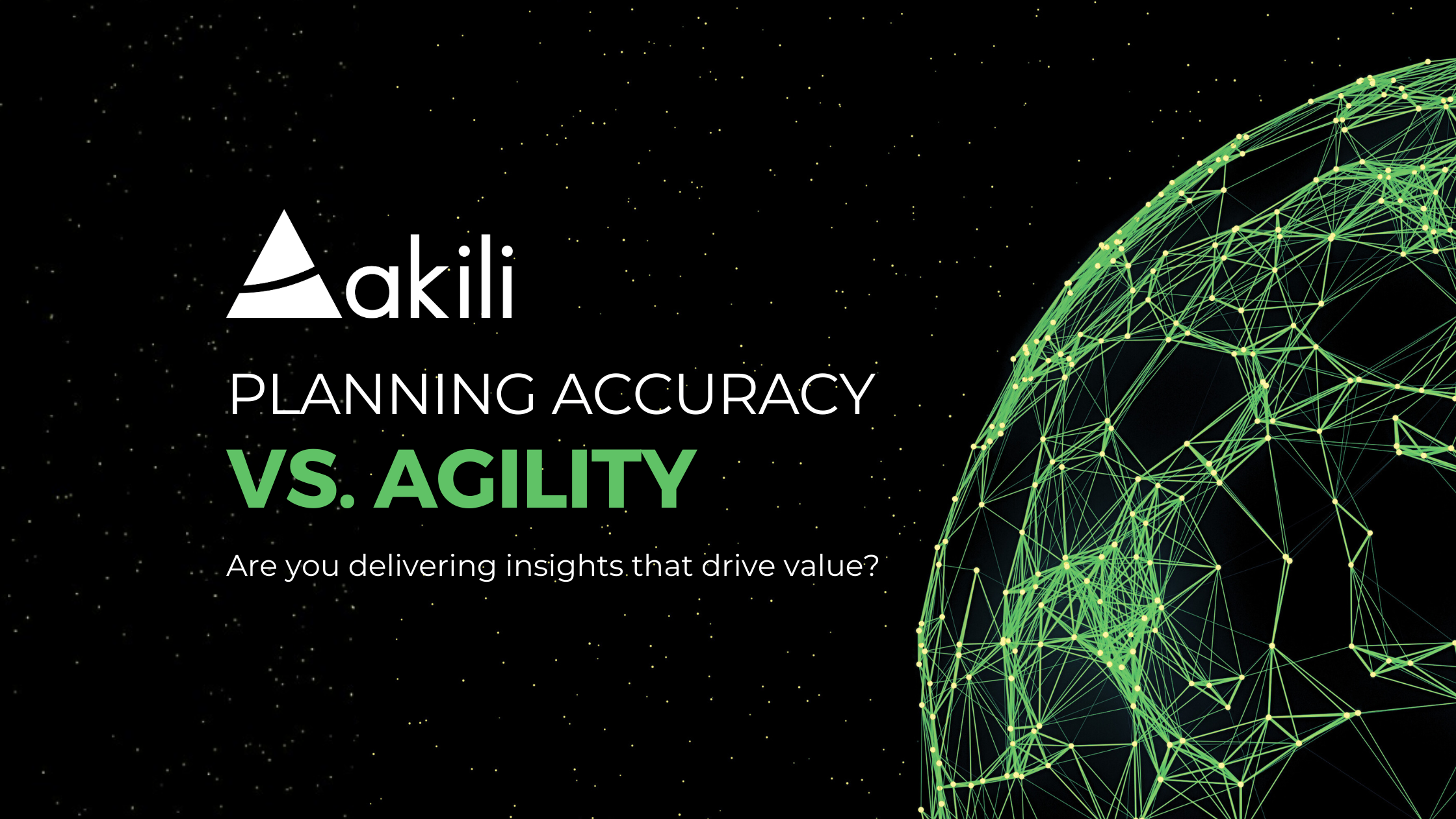.
Akili has been helping customers transform their planning capabilities for almost 20 years. Much has changed in that time. Most companies used Excel instead of advanced planning tools. Every company developed an annual budget and tracked against that budget for the entire year as if it were the holy grail. The primary goal was to predict how the business would perform and then manage to that Budget. When the forecast was updated, it was often only on a quarterly basis. But the budget was still in place and the primary target to hit. Accuracy was the primary focus of the planning activities.
In recent years, many companies have shifted their focus from strict accuracy in forecasts to a broader emphasis that is focused on delivering value. This shift reflects changes in business environments, technological advancements, and the evolving role of FP&A teams.
Here’s were FP&A organizations are being asked to focus:
Strategic Insight – Companies are increasingly looking for FP&A teams to provide insights rather than just accurate numbers. The ability to interpret data, understand business drivers, and offer actionable recommendations is often seen as more valuable than perfect accuracy.
Agility and Flexibility – As markets and industries become more volatile, companies value agility. FP&A teams are expected to provide forecasts that are good enough to guide decisions but can be updated quickly as new information emerges. This requires a focus on the value of the insights rather than absolute precision.
Technology and Automation – With the rise of advanced analytics, AI, and automation tools, the FP&A function is transforming. These technologies can handle much of the data processing, allowing human analysts to focus more on interpreting results and adding value through strategic thinking, rather than just ensuring accuracy.
Holistic Decision-Making – Businesses are increasingly focused on making decisions that consider long-term value creation rather than short-term accuracy in forecasts. In a recent McKinsey report they note “CFOs tend to say they are looking beyond short-term concerns in a way they haven’t in previous years”. This includes considerations like customer satisfaction, market positioning, and sustainability, which might not always be captured by traditional financial metrics.
Scenario Planning and Sensitivity Analysis – Rather than trying to predict a single accurate outcome, companies are using scenario planning and sensitivity analysis to explore a range of possible outcomes. This approach provides more value by preparing the organization for different possibilities rather than relying on a single forecast.
Of course, accuracy still matters. While the focus has shifted toward value, accuracy hasn’t been abandoned. Accurate data is still foundational for any analysis or recommendation. However, the emphasis is now on balancing accuracy with the ability to quickly deliver insights that drive value.
Author: Alan Boyer

